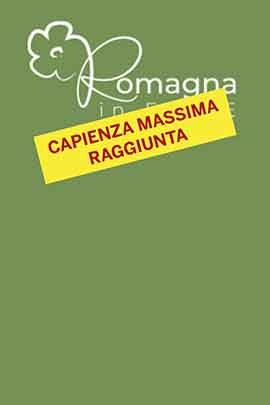We Have a Dream: the 29th edition of Ravenna Festival (June 1 – July 22) pays homage to Martin Luther King, an icon of the Civil Rights Movements. 50 years after his death, his words offer a chance for a mosaic of themes. On the one hand, the programme runs In the veins of America – the land of dreams par excellence – and on the other it celebrates the resiliency of music in the section The new found song of the lyre. And if this edition – as usual – features world-renowned and most beloved artists, it does not forget the voice of the city itself, whose unique heritage the Festival keeps celebrating. How one could not say A j ò fat un sogn (I had a dream) in the local dialect?
In the Veins of America
The Festival’s journey through pivotal events and icons of the 20th century continues with the homage paid to I have a dream, Martin Luther King’s famous speech, and explores the fundamental contribution of the United States – that great melting pot of cultures, ethnicities, religions, and languages – to music as we know it. Besides the legend of musical Cole Porter, with the masterpiece Kiss Me Kate produced by Opera North, the Festival celebrates another of the most representative and beloved American musicians: in the centenary of his birth, Leonard Bernstein will be remembered with the performance, among the others, of his Second Symphony The Age of Anxiety. The musical programmes will give space to another wholly-American invention, Minimalism, through the works of Terry Riley, Philip Glass, and Steve Reich; but also Keith Jarrett’s Ritual will be performed for the first time in Italy.
Special guests of the “American” section the versatile avant-gard rocker David Byrne, founder and frontman of the Talking Heads, and Thurston Moore, co-founder of the legendary alternative rock band Sonic Youth. Moore, among the best rock guitarists of all times, will take part in the invasion of The 100 Electric Guitars, a rich and varied tribute to the prince instrument of the popular music: a week of solos and mass performances, culminating in an surprise visit to the Delta of the Po river to ideally join it to the Mississippi River. New original pieces have been commissioned to American and Italian composers such as Michele Tadini, Bryce Dessner, Glenn Branca, Christopher Trapani.
The New Found Song of the Lyre
Another instrument – the lyre – is the symbol of the ability of music to be brought to new life against the disenchantment of the avant-gardes and the political oppression. Starting from the reference to the Psalm 137 Super flumina Babylonis – whose lament for the exile in Babylon inspired both the Va pensiero choir in Nabucco and the poem Alle fronde dei salici (Upon the Willows) by Italian Nobel prize Salvatore Quasimodo, written during the Nazi occupation – this section explores the chance to “found” music despite the death of art theorised before the tragedies of the 20th century, starting with Auschwitz. And while The Sixteen, one of the renowned choirs featured in this edition, will perform in a concert named after the Psalm 137, The Splendour of Aleppo will focus on the musical repertoires of the Syrian-Christian, Armenian, Muslim, and Jewish communities of the war-wounded city. This section also showcases composers such as Alfred Schittke, Arvo Pärt, e Valentyn Sylvestrov. A guest of this year’s Festival, Sylvestrov will be paid a special homage, including a concert by the Orchestra and Choir of the National Opera Theatre of Ukraine, the performance by the Duo Gazzana, and the meeting with the composer himself.
From the very beginning among the most courageous dreams the Festival has ever dreamt, the bridge of brotherhood The Roads of Friendship reaches Kiev this year: Riccardo Muti will be on the podium of the Orchestra and Choir of the National Opera Theatre of Ukraine and of the Luigi Cherubini Youth Orchestra for the two concerts joining Ravenna to one of the most ancient cities in Eastern Europe. The gold of mosaics is already shining on this journey: the symbol of Kiev is the Saint Sophia’s Cathedral which was modelled on Hagia Sophia in Constantinople, whose features mirror the Basilica of San Vitale in Ravenna as well.
Besides the Friendship concert, in “his” Ravenna Riccardo Muti will also conduct, 50 years after his debut in Florence, the Orchestra del Maggio Musicale Fiorentino and an outstanding vocal cast (Luca Salsi, Vittoria Yeo, Francesco Meli, Riccardo Zanellato) in the concert dedicated to Giuseppe Verdi’s Macbeth. The symphonic programme will be completed with other great orchestras and conductors. The Cherubini Youth Orchestra will be led alternatively by Wayne Marshall, Dennis Russell Davies e David Fray; while Valery Gergiev and James Conlon will be on the podium of the Mariinsky Theatre Orchestra and the Orchestra Sinfonica Nazionale RAI respectively; the concert of Accademia Bizantina, led by Ottavio Dantona, will be dedicated to J. S. Bach’s The Art of Fugue.
Within the dance section, this edition will see the return of choreographers Bill T. Jones and Emio Greco, with the Italian premieres of two new works – respectively A Letter to My Nephew and Apparition, based on Gustav Mahler’s Kindertotenlieder. The 29th edition also features several plays: from the city of Naples portrayed in L’amica geniale (The Brilliant Friend), a new creation by Fanny & Alexander, and in Mario Martone’s Tango glaciale, re-staged within the RiC.Ci project; to the Islamic point of view explored in Rachid Benzine’s Letters to Nour, an Italian premiere with Franco Branciaroli, and in Luca Doninelli’s Maryam, staged by Teatro delle Albe and featuring Ermanna Montanari; to Sophocles’s Antigone in the new reading by Elena Bucci and Marco Sgrosso (Le Belle Bandiere). Last but not least, the daily events: the tribute to Dante at 11 am in the Franciscan Cloisters by the Poet’s Tomb, and the Vespers concerts in the Basilica of San Vitale at 7 pm.
